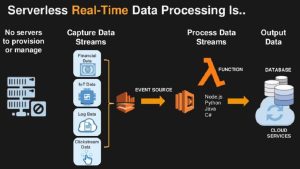John Bradberry – Startups: not your average new small business
On the most basic level, startups and new businesses are basically the same in their fundamental purpose – each is working to bring a new product or service to the market in the hope of growing and making a profit. However, as startup experts like John Bradberry will tell you, there are enough differences in terms of how each of these approach questions about which product to bring to the market and how fast to grow to justify treating them as different things. The lines between them are sometimes fuzzy, but there are a few things that can reliably distinguish a startup from a new business.
Startups are based on scalability
Scalability refers to an ability to grow in terms of size and scope without a proportionate increase in necessary inputs. Put differently a scalable product one that can be produced easily in increasing amounts without requiring a significant increase in the cost to produce it. The classic example of a scalable product is a piece of software that can be reproduced as many times as required at a very low cost.
Startups seek to provide a solution
Generally speaking, a new business enters the market with a product or service already defined. However, startups put the cart before the horse, so to speak. Rather than having a product already available, startups invest significant resources in the development of a product to bring to market which does not already exist. A common impression of the products that startups bring is that they seem so obvious that it is hard to imagine they didn’t exist before they existed.
Startups need investors who are ok with risk
Most people who are starting their own small business will secure a bank loan or grant in order to fund it in the early days. Startups take a different approach, and are funded by investors who are looking for an opportunity to receive quick profits on their investment. These investors must be willing to put their money into the possibility that the startup will come up with the right solution to the right problem. Otherwise, it is money down the drain.
Startups expect to grow – fast!
Given the nature of the startup as being scalable and as solving problems rather than being about tangible products, it is not surprising that most startups are tech based. As a result, startups to have a different vision of growth than a traditional business. While traditional businesses produce goods or services that are fairly restricted in terms of geography or industry, startups, right from the beginning have global markets because their business is basically virtual and conducted online – and the products they develop are intended to have a global appeal. As a result, they have potentially huge markets right from day one, and can expect and plan for rapid growth if they find the right solution to the right problem.
These are just a few of the key differences between a small business and a startup.











Post Comment